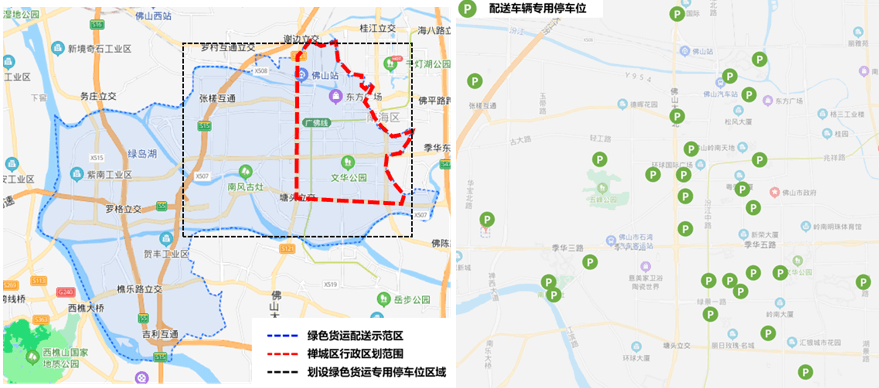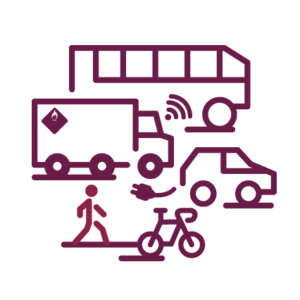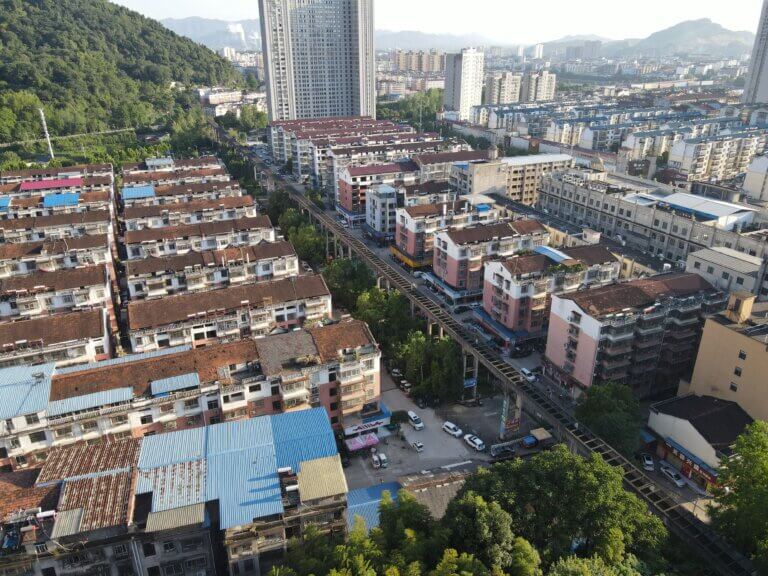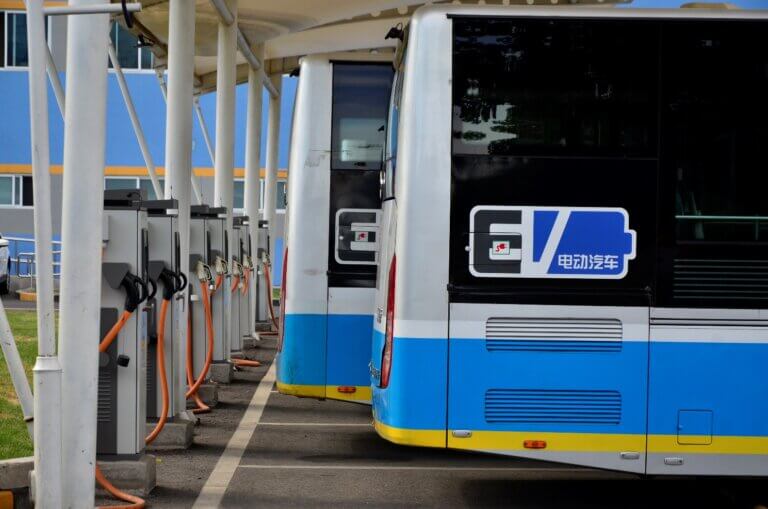On August 24th, 2021, the Kick-off Workshop to the pilot project “Research on Setting of Temporary Loading and Unloading Parking Zones for New Energy Freight Vehicles in Chancheng District of Foshan” was jointly held by the Deutsche Gesellschaft für Internationale Zusammenarbeit (GIZ) and the Nanjing Institute of City & Transport Planning (NICTP).
Experts from the National Development and Reform Commission (NDRC), the Transport Planning and Research Institute (TPRI) of the Ministry of Transport of the People’s Republic of China (MoT), Southeast University, Foshan University, University of Westminster, and representatives from the Foshan Transportation Bureau and the Chancheng District Transportation Bureau attended the workshop, and shared their reflections and suggestions for the project.

Roughly 10% of China’s total carbon emissions is caused by the transport sector, of which freight transport accounts for approximately 65%. The promotion of New Energy Vehicles (NEVs), in particular battery electric vehicles, in freight transport is an important measure for effectively reducing emissions and a further step towards achieving the 2030 carbon dioxide emission peaking and 2060 carbon neutrality targets set by President Xi Jinping in 2020. Freight transport has also witnessed growing demand particularly in urban areas, exacerbating such issues as air pollution and congestion in many cities across China.
The city of Foshan is an important transport hub in South China’s Guangdong province and the Greater Bay Area (GBA).[1] With a growing population of about 8 million and a GDP of EUR 126.6 billion (2018), Foshan is one of the most economically developed cities in China, and serves as a trade centre in the GBA. It has a sprawling e-commerce and urban delivery industry, but as a result also faces the accompanying challenges of congestion, high air pollution and carbon emissions from the transport sector. Foshan has taken various measures to accelerate the promotion of NEVs in freight transport. These include providing subsidies on purchase and operation, promoting the construction of a charging infrastructure, or giving NEVs priority in granting city delivery permits. Only recently have temporary loading/unloading parking zones for freight vehicles, as another important “right of way” policy, also caught the attention of policy makers.
In 2019, Foshan was selected as one of the second batch of cities for the Green Urban Freight Pilot Programme,[2] which aims to build an “intensive, efficient, green, and intelligent” urban freight service system,[3] and to provide strong support for promoting sustainable urban development. In the programme, first launched by the Ministries of Transport, Public Security, and Commerce in 2017, the setting of temporary loading/unloading parking zones for freight vehicles is one of the key assessment criteria.
The Chancheng District is a central and densely populated area of Foshan. Although “mature” in terms of urban development, the district is witnessing serious traffic congestion and its parking spaces are increasingly insufficient for the growing demand. It has only recently begun setting temporary loading/unloading parking zones for new energy freight vehicles, with 30 spaces having been set up mainly in core areas of the district by mid-August 2021. The implementation effect is yet to be evaluated. There is, however, a lack of efficient parking enforcement for urban delivery NEVs, continued random parking and loading/unloading of freight vehicles blocks the road, aggravates traffic congestion, takes up spaces on non-motorized lanes or pavements, and consequently increases CO2, NOX, and other air pollutant emissions.

Further research into temporary loading/unloading spaces is needed. It is necessary to scientifically and rationally allocate temporary parking spaces for freight vehicles based on roadside commercial activities, as well as on passenger and freight vehicle parking demand, to successfully make Foshan a green freight pilot city and provide a blueprint for other cities.
To achieve this and support Foshan in fulfilling the requirements of the Green Urban Freight Pilot Programme, maintaining the momentum of NEV deployment in Foshan’s freight sector, and ultimately reaching the national carbon peaking and neutrality goals, the pilot project “Research on the Setting of Temporary Loading and Unloading Parking Zones for New Energy Freight Vehicles in the Chancheng District of Foshan” is implemented under the framework of the Sino-German Cooperation on Low Carbon Transport (CLCT) project.
The pilot project focuses on:
- Relieving the difficulties of parking spaces for new energy freight vehicles in the Chancheng District of Foshan,
- Conducting a research study on the setting of temporary loading/unloading parking zones for New Energy freight vehicles, and
- Further improving the policy environment to promote green (low air pollution and low carbon) urban freight and new energy freight vehicles.
For more information on the pilot project, please contact us through transition-china@giz.de.
[1] Foshan is one of nine municipalities (besides Guangzhou, Shenzhen, Dongguan, Huizhou, Zhaoqing, Zhongshan, Jiangmen and Zhuhai), which together with the two Special Administrative Regions (SAR) Hong Kong and Macao form the Guangdong-Hong Kong-Macao Greater Bay Area (GBA) – with an area of 56,000sqkm and a population of about 70 million one of the world’s largest urban agglomerations.
[2] “Notice on the Announcement of the Second Batch of Cities for the Green Urban Freight Pilot Programme,” Ministry of Transport of the People’s Republic of China,https://xxgk.mot.gov.cn/jigou/ysfws/201912/t20191223_3311939.html (in Chinese).
[3] “Three Ministries Jointly Launch Green Urban Freight Pilot Programme,” State Council of the People’s Republic of China, http://www.gov.cn/xinwen/2017-12/27/content_5250767.htm (in Chinese).





